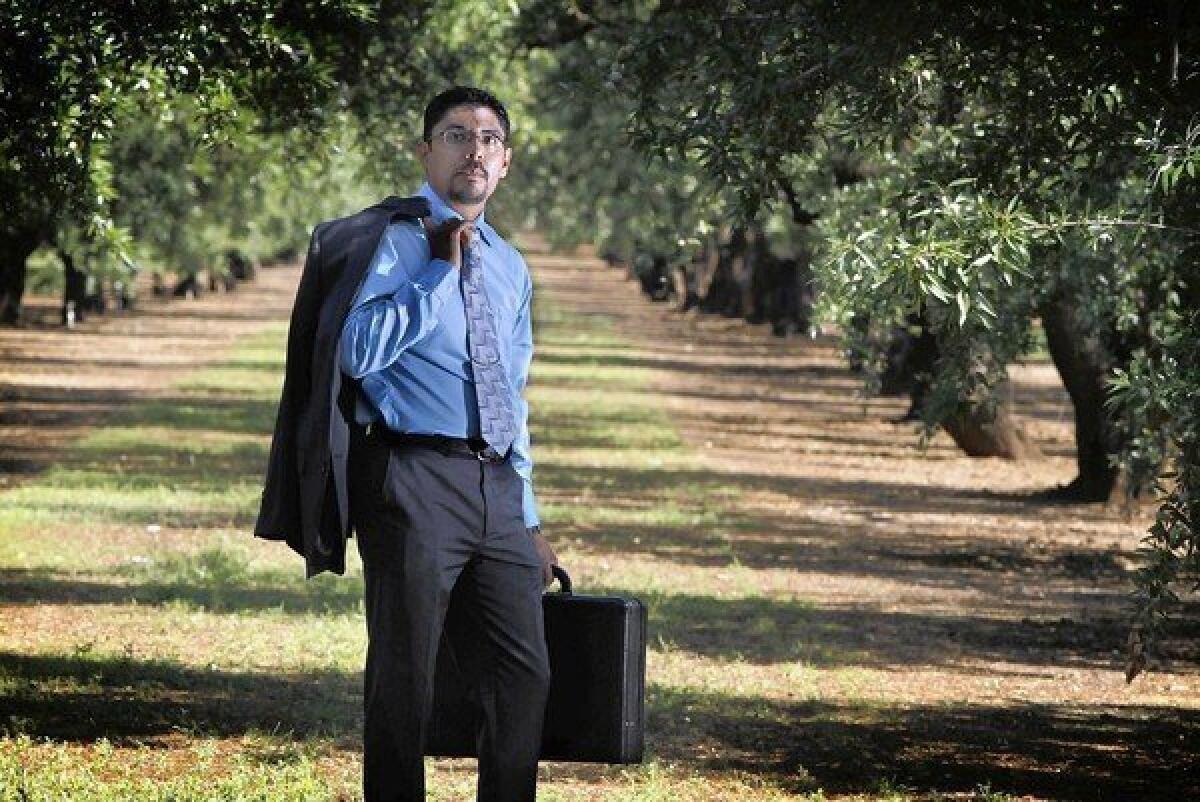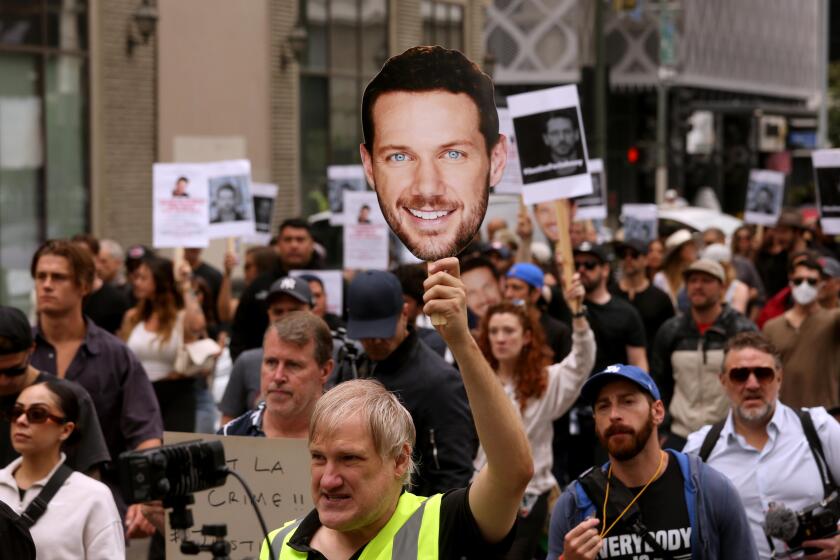Justice Department opposes illegal immigrant’s bid to practice law

An illegal Mexican immigrant who wants to be licensed to practice law in California has received support from the state’s top law enforcement officer, the State Bar of California, civil rights groups, county bar associations and law professors — but not from the Obama administration.
In a brief to the California Supreme Court, theU.S. Department of Justicesaid federal law prohibits giving a public benefit, such as a bar license, to an “unlawfully present alien.”
The federal law was “plainly designed to preclude undocumented aliens from receiving commercial and professional licenses issued by states and the federal government,” a lawyer for the Justice Department wrote in a brief requested by the state high court.
The Justice Department’s position surprised and dismayed some supporters of Sergio C. Garcia, 35, the immigrant who has passed the bar examination but cannot be licensed unless the state’s highest court approves.
In a long line of friend-of-the court briefs, only the federal government and a former state bar prosecutor have opposed Garcia’s licensing.
Chapman University law professor John Eastman said he was surprised but pleased by the federal government’s position. He said it would make it more difficult for the court to admit Garcia.
“Given the Department of Justice brief, that would be a fairly lawless step to take,” Eastman said.
Retired California Supreme Court Justice Carlos R. Moreno, who now practices law in Los Angeles with Irell & Manella, said he had expected the Obama administration to take a more neutral position.
“It does seem contrary to recent efforts by the Obama administration to make immigrants like Garcia a low (enforcement) priority,” said Moreno, who wrote a brief in favor of Garcia on behalf of bar associations.
Moreno said the federal government’s position, if accepted by the state’s top court, could affect licensing for undocumented immigrants for a wide array of jobs, from cosmetology to building contracting. “If you take the broad interpretation they are taking, it could have wide ramifications for cities and counties and hundreds of professions that require some kind of license,” Moreno said.
Jerome Fishkin, Garcia’s lawyer, called the U.S. position “disappointing but not fatal” and described it as based on a “pretty thin” legal analysis.
Garcia, a resident of Dunsmuir who works for his father, a beekeeper, declined to be interviewed.
Garcia came to the U.S. from Mexico when he was 17 months old, returned to his homeland with his family when he was 9 and reentered the country with family members when he was 17. He graduated from Cal State Chico and Cal Northern School of Law, paying his own expenses without any financial assistance, according to his lawyer. “He is a man with a dream and a very good work ethic,” Fishkin said.
Garcia’s father, who the state bar said is now a U.S. citizen, applied for a green card for his son 18 years ago. The application is still pending.
California Atty. Gen.Kamala D. Harris, disagreeing with the Justice Department, maintained that admitting Garcia would comply with both state and federal policies that encourage immigrants “to contribute to society.”
“It is not a crime either to be present or to work in the United States without immigration status, and Garcia has never been charged with the crime of unlawful entry,” Harris’ office wrote. “In fact, Garcia has been forthright about his immigration status with federal officials and has been approved for a visa when one becomes available.”
Although federal law prohibits state agencies from giving professional licenses to undocumented residents, the state high court is not a state agency, and law licenses are paid by attorneys through annual dues, Harris’ office argued.
The Justice Department countered that the California Supreme Court, which issues law licenses, receives state funding. “Mr. Garcia’s application should therefore be denied,” the federal lawyers wrote.
The regulation and licensing of lawyers has long been a state, not a federal, duty, and the California Legislature has passed laws that favor benefits for illegal immigrants.
One of these laws makes undocumented immigrants who graduate from a California high school eligible for in-state tuition. The court upheld that law unanimously in 2010, ruling that it applied to both “unlawful aliens” and others who met the requirements. Another state law, called the California Dream Act, will soon make undocumented immigrant students eligible for public college assistance.
In deciding to review Garcia’s case, the court asked interested parties to weigh in on whether Garcia would be permitted to work if licensed. The state bar said he could work as an independent contractor. The Justice Department said he could not. Harris said Garcia could work outside the country, advising clients about state and federal law, or in California if he did not charge fees.
The court has not indicated when it might rule in Garcia’s case. But his lawyer said Garcia depended upon state bar documents that indicated there was no residency or citizenship requirement.
“Sergio Garcia committed himself to years of costly education and hard work to pay his own way in reliance on the state bar’s rules of admission,” Fishkin wrote. “He did everything that was required of him.”
More to Read
Sign up for Essential California
The most important California stories and recommendations in your inbox every morning.
You may occasionally receive promotional content from the Los Angeles Times.











